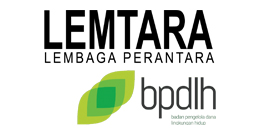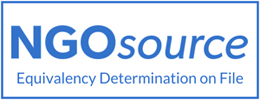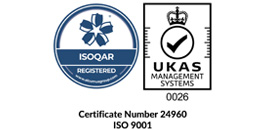Rural Development
Desa Lestari Program is a comprehensive strategy for the sustainable and balanced of rural community empowerment. The program emphasizes that rural development should be participative, based on the strength and independence of local villagers and trying to meet their needs of the present without compromising the ability of village in the fulfillment of their needs in the future.
Development of Desa Lestari models is simultaneously combining three cycles, namely a cycle of community organizing that will takes more than one year; village governance cycle and village financial cycle both has annual period.
Penabulu believes that good management of the government will be the main enabling condition for the realization of a sustainable village. Only the village, which is managed, based on a sustainable development planning, considered the balance of economic, social, and environmental, that will be sustainable.
The specific purpose of this program is to encourage participation, independence and self-reliance of rural communities in village governance, transparency and accountability of administrative and financial management, the village community economic empowerment, establishment and management of cooperatives/BUMDesa, and the sustainable use of natural resources that owned by the village.
The program will be focusing on training and mentoring for local institution strengthening, improving governance and accountability of administrative and finance management, development of software and support tools, development of open literacy, which according to the local context, characteristic, knowledge and wisdom of each program’s target village.
- Development of Desa Lestari Model in DI Yogyakarta and Papandayan, Garut
- Supporting Desa Lestari Program In The Special Province of Yogyakarta
- Technical Guidance of Financial Management in District of Sumenep
- Capacity Building and Strengthening Democratic Values in Good Governance at The Village Level in the Program Area of IDRAP
- Strengthening Public Financial Management Capacity to Improve Public Service Delivery at Frontline Service
- Training of Trainers for Village Empowerrnent in Mahakam Ulu District
- Child Participation Class in MUSRENBANGDES
- Workshop and Training on the Establishment of Village-Owned Enterprises and Cooperatives within the Framework of Peat Restoration
- Civic Engagement Alliance for Smallholders Empowerment
- Training & Workshop Development and Strengthening Village-Owned Enterprise Generation I The Peat Care Village (DPG)
- Agriculture Livelihood Assessment in Southwest Sumba
- Dissemination of Effective Practices of Forestry Resource Management for Enhancing Sustainable Livelihoods and Pro-Community Climate Change Narratives through Utilization of Communication Media Between Rural Communities
- Managing Risk Through Economic Development Program (MERD)
- The Challenge on Accelerating the “Desa Mandiri” Development in West Kalimantan
- Sustainable Use of Marine Protected Areas by Communities in the Sawu Sea
- Increasing the Role of Youth in Disaster Risk Reduction
- Preliminary Survey of Saemaul Pilot in 6 Villages at Kapanewon Nanggulan, Kulon Progo Regency, Special Region of Yogyakarta
- Development of Village Good Practice Management Guidelines (SWAKELOLA TIPE III)
- District of Gunungkidul and Bantul, DI Yogyakarta
- District of Garut, West Java
- District of South Konawe and North Buton, Southeast Sulawesi
- DI Yogyakarta
- District of Sumenep, East Java
- South East Sulawesi
- East Java
- Nusa Tenggara Barat
- West Kutai
- District of Sigi, Central Sulawesi
- East Kalimantan
- Merauke
- Banjarmasin
- Palembang
- North Moluccas
- Central Java
- Lampung
- Riau
- Jambi
- South Sumatera
- Central Kalimantan and South Kalimantan
- Southwest Sumba
- Kulawi and Lindu Sub District, Sigi District, Central Sulawesi
- West Kalimantan
- East Nusa Tenggara: Kupang City, Kupang Regency, East Sumba Regency, Rote Ndao Regency, West Manggarai Regency
- Donggala District, Central Sulawesi
- DKI Jakarta
- SIMPUL Desa | Integrated System of Village Administration Data
Application software intended for the village government officers in order to manage the village administrative data in an information system and an integrated electronic reporting in accordance with Ministry of Home Affairs Regulation No. 32 of 2006 on the Village Administration Guidelines.
- SIAP Desa | System and Financial Application of Village Fund
Application software intended for the management and preparation of reporting locally-generated revenue (PAD – Pendapatan Asli Daerah), central-regional equalization funds (Dana Perimbangan), Village-Fund Budget (ADD – Anggaran Dana Desa) also including a new revenue source for the village, namely Village Fund (DD – Dana Desa) from the state budget (APBN), drawn up by Ministry of Home Affairs Regulation No. 113 of 2014 on the Village Financial Management which is a refinement of the Ministry of Home Affairs Regulation No. 37 Year 2007 on Guidelines for the Rural Finance Management.
- Desa Digital | Village Profile in Digital World
Desa Digital is an initiative to digitize village profile through media websites by running it through systematic and realistic stages.
- Desa Lestari | Swadaya, Swatata, Swatantra
- A program and service unit of Penabulu Alliance in simultaneously combine three cycles: community organizing cycle that takes more than one year; village governance cycle and village financial cycle both based on annual period.
- Keuangan Desa | Discussion and Open-Literacy Media for Village Finance
- Supporting unit of Penabulu Alliance, dedicated as media literacy, sharing and discussion about the rural/villages finances in Indonesia.
- Interface | Encouraging Transparency of Public Information
- Service unit of Penabulu Alliance, working for the development of ICT-based interface platform to encourage public disclosure and open equal space dialogue between the government and citizens.
- SGF (Saemaul Globalization Foundation)
South Korean development institutions that bases its work on the principle of Saemaul Undong to empower and build village’s self-reliance.
- REKSTA (PT Reksa Tata Artha)
A distributor company for after-sales service and guarantor of the application SIMPUL Desa and SIAP Desa.
- Lamin Segawi | Strengthening CSOs in Kalimantan
Non-profit organization, one of the semi-autonomous unit developed by Penabulu Alliance for the strengthening of civil society, especially in the area of East Kalimantan.
- IDRAP (Institution for Development of Rural and Indigenous People)
Non-profit and non-governmental organization working for materialization of rights to development of rural and indigenous people in South East Sulawesi Province of East Indonesia.
- Kanopi (Indonesia Tropical Environment Nature Conservation)
An association based in Berau, established to realize order-based development environment that is based on the principles of transparency and accountability.
- Rekapala (Remaja Kelana Pecinta Alam)
Nature club and empowering communities organization in Garut, West Java, with a focus on the conservation of natural resources for sustainable ecological justice.
- JPIP (The Jawa Pos Institute of Pro-Otonomi)
Nonprofit institution founded by Jawa Pos Group as a form of social responsibility of Jawa Pos to promote the progress of economic life, social and political conducive through the implementation of regional autonomy.
- The Government of Sumenep
- KOMPAK – Abt JTA (Community Collaboration and Services for Welfare)
KOMPAK is a facility funded by the Australian Government to support a number of Government of Indonesia (GoI) programs in achieving the RPJMN 2015-2019 targets of reducing poverty by improving the quality and coverage of basic services and by increasing off-farm economic opportunities for the poor.
Wahana Visi Indonesia is a Christian humanitarian organization working to create lasting change in the lives of children, families and communities living in poverty. Inspired by our Christian values, Wahana Visi is dedicated to working with the most vulnerable people. Wahana Visi serves all people regardless of religion, race, ethnicity or gender.
Abt Associates is a mission-driven, global leader in research, evaluation and implementing programs in the fields of health, social and environmental policy, and international development. Known for its rigorous approach to solving complex challenges, Abt Associates is regularly ranked as one of the top 20 global research firms and was named one of the 40 international development innovators. The company has offices in the U.S., Australia and the U.K., and program offices in more than 50 countries.
- BRG (Badan Restorasi Gambut)
BRG is a non-structural institution that is under and is responsible to the President. BRG was formed on January 6, 2016, through Presidential Regulation Number 1 of 2016 concerning the Peat Restoration Agency.
BRG works in a special, systematic, directed, integrated and comprehensive manner to accelerate the recovery and return of hydrological functions of damaged peat mainly due to fire and drying.
- ICCO
- Kemitraan Partnership (The Partnership for Governance Reform)
The Partnership for Governance Reform, or Kemitraan, was established in 2000 following Indonesia’s first free and fair elections for two generations in 1999. These historic elections represented an important step towards moving Indonesia beyond its authoritarian past and towards its democratic future. Kemitraan was established as a multi-donor trust fund and managed by the United Nations Development Programme (UNDP). Kemitraan was founded and led by a number of prominent Indonesian leaders from the government, civil society and the private sector to promote principles of good governance.
The William & Lily Foundation is an Indonesia-based philanthropic organization, established in 2009 as an outgrow of the philanthropic legacy of William and Lily Soeryadjaya. As an active grant-making foundation, The William & Lily Foundation work closely with theirs implementation partners on three focus areas: Education, Healthcare and Economic Empowerment.
The William & Lily Foundation believe that every person should have the ability and right to choose the life they lead, rather than to be only determined by circumstance. The three focus areas The William & Lily Foundation have chosen represent what we believe to be the most crucial factors in creating conditions where this ability to choose can be made possible.
Ford Foundation believe in the inherent dignity of all people. But around the world, too many people are excluded from the political, economic, and social institutions that shape their lives.
Across eight decades, Ford Foundation’s mission has sought to reduce poverty and injustice, strengthen democratic values, promote international cooperation, and advance human achievement.
In addressing this reality, Ford Foundation are guided by a vision of social justice—a world in which all individuals, communities, and peoples work toward the protection and full expression of their human rights; are active participants in the decisions that affect them; share equitably in the knowledge, wealth, and resources of society; and are free to achieve their full potential.
In more than 40 countries around the world, nearly 6,000 team of Mercy Corps members work side by side with people living through poverty, disaster, violent conflict and the acute impacts of climate change. Mercy Corps is committed to creating global change through local impact — 85 percent of Mercy Corps team members are from the countries where they work.
Mercy Corps bring a comprehensive approach to every challenge, addressing problems from multiple angles. Thanks to support from Mercy Corps’ extended global community, Mercy Corps has provided $4 billion in lifesaving assistance to meet the urgent needs of more than 220 million people over nearly 40 years. Mercy Corps also go beyond emergency aid, partnering with local governments, forward-thinking corporations, social entrepreneurs and people living in fragile communities to develop bold solutions that make lasting change possible.
IDH, The Sustainable Trade Initiative, with headquarters in the Netherlands brings governments, companies, CSOs and financiers together in action driven coalitions. We orchestrate the powers of law, of entrepreneurship and investments to work together to create solutions for global sustainability issues at scale.
We apply innovative, business driven approaches to create new jobs, sustainable industries and new business models to have large scale positive impact on (e.g.) climate change, deforestation, gender, living wages and living incomes, which will help reaching the Sustainable Development Goals by 2030.
The Indonesia Climate Change Trust Fund (ICCTF) is a key instrument of the Government of Indonesia in reducing emission intensity and greenhouse gases emission through actions of low carbon development and adaptation on climate change impact. ICCTF also strives to integrate climate change issues into Development Plans at the national, provincial and regional level as well as implementing the initiatives on climate change mitigation and adaptation. Through leveraging and channeling of domestic resources and international funds into projects aligned with Indonesia’s RAN/RAD-GRK implementation plan, the ICCTF supports Indonesia’s 26% / 41% emission reduction target.
The Australian Consulate-General in Makassar promotes business, education, people-to-people and cultural links between Australia and eleven provinces in eastern Indonesia: East Kalimantan, South Kalimantan, South Sulawesi, Southeast Sulawesi, West Sulawesi, Central Sulawesi, Gorontalo, North Sulawesi, Maluku, North Maluku and West Papua province. The Consulate-General also provides consular and passport services to Australian citizens in these provinces.[1]
Eastern Indonesia is a vast area of over 11,000 islands and more than 51 million people who have a diverse and deep cultural and linguistic heritage. It is an area rich in mineral and natural resources, has extensive mountain, coastal and island zones of great natural beauty, and seas rich in fish and other marine resources.
Australia has a long history of trade and contact with the peoples of eastern Indonesia. For example, since at least the 1700s, Makassan traders sought sea-cucumber (trepang) and other resources from northern Australia for on-sale to merchants from imperial China. Strong relationships were built between the Makassans and the indigenous people of northern Australia. Today, our trading and business links with the eastern provinces of Indonesia are growing fast as the east opens up and new ports, bridges, airports, and industries are built. Tourism, education and agriculture are key areas of growth where Australian businesses, institutions, experts and social enterprises play an important role. Our mining and mining service companies have long been well established in the eastern islands, and will continue to be important contributors to economic growth in the region.
The Consulate-General in Makassar develops and maintains a wide range of networks across all our eleven provinces, drawing on the skills, knowledge and experiences of people from both our countries. We see great potential for building stronger trade and investment links in agriculture, mining services, sustainable tourism and new technologies; strengthening connections between schools and educational institutions in Australia and eastern Indonesia; building connections with our growing alumni groups; and strengthening links between regional governments in eastern Indonesia and regional Australia.
Saemaul Globalization Foundation is a non-profit foundation established in Gyeongsangbukdo Province, South Korea in 2013. In 2015, a representative office was opened in Indonesia, and in March 2016 the Saemaul Indonesia Globalization Foundation (YGSI) was formed. Currently, YGSI is implementing a community empowerment program in Gunungkidul Regency, Yogyakarta Special Region and Subang Regency, West Java by applying the South Korean Saemaul Undong concept which is adapted to the situation in Indonesia. Currently YGSI will develop a Pilot Village in the Kulon Progo Regency, DIY, therefore a baseline process is needed in 6 villages in Nanggulan District to obtain the right Saemaul Pilot Village.
The Ministry of Villages, Development of Disadvantaged Regions, an Transmigration (KDPDTT) of the Republic of Indonesia is a ministry within the Government of Indonesia in charge of village and rural area development affairs, empowering rural communities, accelerating the development of underdeveloped areas, and transmigration. The Ministry of Villages, Development of Disadvantaged Regions and Transmigration is under and responsible to the President. This ministry is led by a Minister of Villages, Development of Disadvantaged Regions and Transmigration who since October 27 2014 has been held by Mr. Marwan Ja'far. And then in 2016 the baton of leadership passed to Mr. Eko Putro Sandjojo.
Through the Decree of the President of the Republic of Indonesia Number 113/P of 2019 concerning the Formation of State Ministries and the Appointment of State Ministers of the Advanced Indonesian Cabinet for the 2019-2024 period, the Ministry of Villages, Development of Disadvantaged Regions, and Transmigration is led by Mr. Abdul Halim Iskandar.




